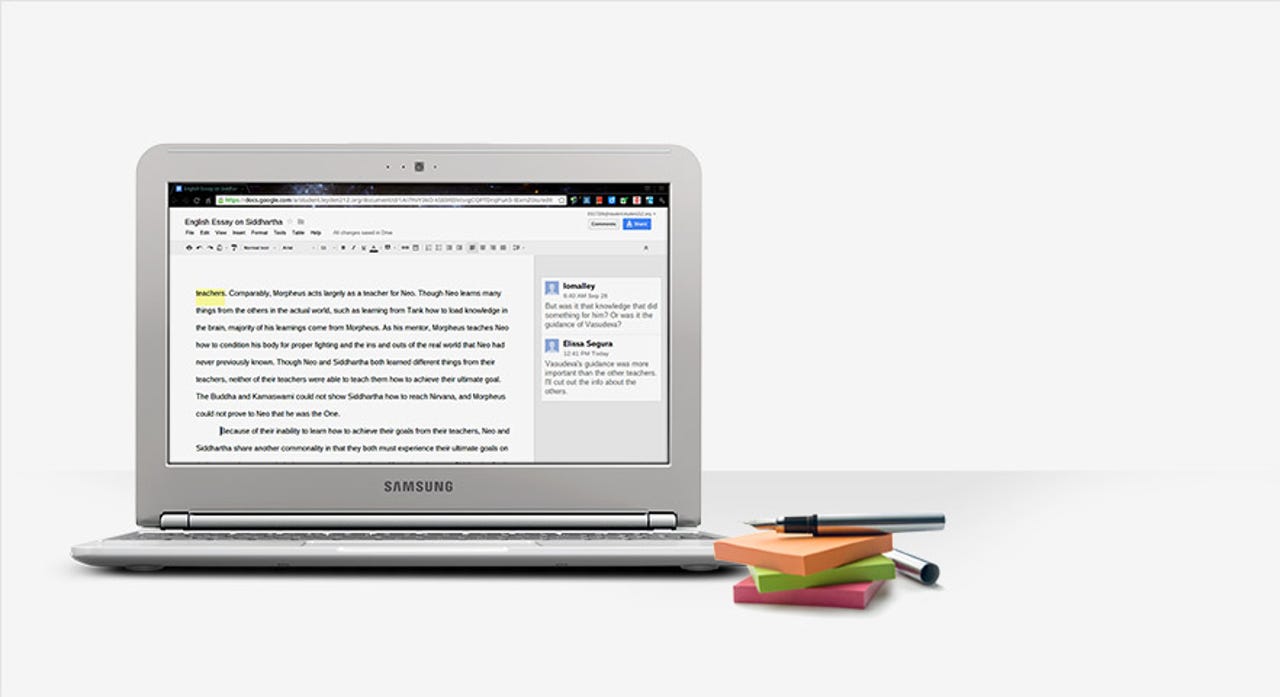Chromebooks schooling Apple, Microsoft in education market, according to new report


Mobility
As the PC market continues its gradual decline, areas for growth are becoming few and far between, but the education world remains a rare area for computers makers to tap into. Over the past couple of years, no one has tapped into schools like Chromebook manufacturers. According to a new report from Futuresource Consulting, the (mostly) budget-priced notebooks that run Google's Chrome operating system have gone from a statistical blip to the dominant player in the space in the time it's taken a second grader to reach the fifth grade.
Futuresource claims that Chromebooks accounted for more than 50 percent of U.S. sales for education devices in the third quarter, a jump that comes at the expense of iOS devices (i.e., iPads) and, to a lesser degree, Windows PCs. That's up from 40 percent at the same point last year, and less than one percent back in 2012.
It's not too hard to determine why Chromebooks have swiftly infiltrated classrooms, thanks to starting prices that are notably cheaper than iPads. The laptop form factor is often better suited to productivity as well, allowing students to type without needing the extra expense of an optional keyboard. Considering the strained budgets of many school districts, saving thousands of dollars on new technology seems like a no-brainer.
But Chromebooks' rapid ascent isn't a guarantee that they will continue to dominate the education market. Futuresource expects Microsoft to redouble its efforts to increase sales of Windows systems to schools, emphasizing the increasingly popular 2-in-1 laptops at a cheaper price point. There are a handful of 2-in-1 Chromebooks, such as the Asus Chromebook Flip, but Chrome is not optimized for touch support as well as the most recent versions of Windows is.
Chromebook adoption is far slower in the rest of the world than in the U.S., with a mere 3 percent market share in non-U.S. schools, according to Futuresource. While that provides a massive opportunity for growth, Google isn't doing itself any favors if the Electronic Frontier Foundation's allegations are true that the company is collecting data on students using its Chromebooks, something the privacy-focused European nations wouldn't look kindly upon.
[Via NBC News]